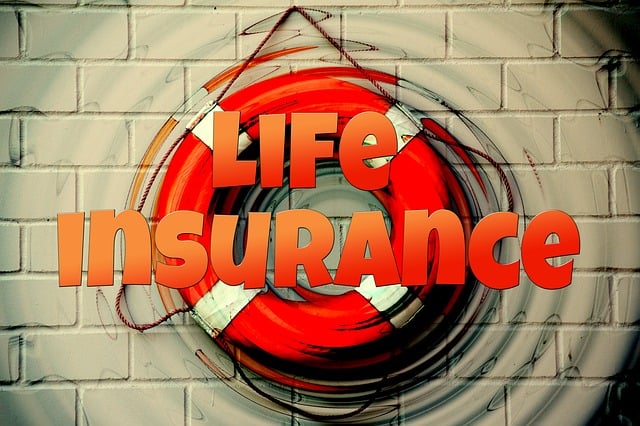Running a home-based business requires tailored insurance policies to mitigate risks. These protect assets from damage, theft, and liability claims. Key coverage includes property damage, personal injury, professional liability, and business interruption. Specialized policies address unique home-based business challenges, ensuring comprehensive protection for both business and personal assets.
Starting a home-based business is an exciting venture, but it comes with unique risks. Understanding these risks and securing the right insurance policies is essential for any entrepreneur. This guide dives into property and liability coverage options tailored for home-based businesses. From assessing potential dangers to navigating policy intricacies, we’ll help you protect your investment and manage liabilities effectively. Discover the steps to choose the best insurance policies for a secure business future.
Understanding Home-Based Business Risks

Running a home-based business brings unique risks that many entrepreneurs often underestimate. These risks can range from accidental injuries sustained on your property, to damage caused by business-related activities to neighboring spaces, or even legal issues arising from contracts and services provided. Since home-based businesses often blend personal and professional lives, it’s crucial to have insurance policies tailored to these specific risks.
Insurance policies for home-based businesses are designed to provide liability coverage, protecting against potential losses and claims. These policies can also offer property coverage, ensuring your home and business equipment are secured in the event of damage or theft. Understanding these risks and choosing the right insurance is a vital step in safeguarding both your business and personal assets.
Property Insurance Basics for Businesses

For home-based businesses, securing appropriate property insurance is a fundamental step in safeguarding your assets and operations against potential risks and losses. Insurance policies for home-based businesses typically cover the physical structures and belongings within your workspace, offering financial protection in case of damage or theft. This includes not only the main residence but also any additions or structures specifically used for business purposes.
Property insurance for businesses usually comes in various forms, such as homeowners’ insurance with business add-ons or specialized commercial policies. These policies provide liability coverage, which shields you from financial responsibility if someone gets injured on your property or if your business activities cause property damage to others. Understanding the scope of coverage and limitations within these insurance policies is crucial to ensuring your home-based venture is adequately protected.
Liability Coverage: Protecting Against Claims

Liability coverage plays a pivotal role in safeguarding home-based businesses from potential claims and lawsuits, which can be especially costly given the intimate setting of these operations. An ideal insurance policy should offer comprehensive protection against various risks, including personal injury, property damage, and professional liability. For instance, if a client slips and falls on your premises or suffers an injury due to your products, liability coverage can help cover legal fees, medical expenses, and any damages awarded.
Business owners must carefully review their insurance policies to ensure they are tailored to the specific nature of their home-based business. This may involve consulting with insurance professionals who can guide them in selecting appropriate coverage limits and understanding the policy’s exclusions and conditions. By investing in robust liability coverage, home-based businesses can maintain peace of mind, knowing that they are better equipped to navigate potential legal challenges and protect their financial stability.
Common Exclusions and How to Mitigate Them

Many insurance policies for home-based businesses have specific exclusions that can leave owners underprotected. Common ones include coverage gaps for business activities conducted outside the home, damage caused by certain types of business equipment, and liability related to products or services provided. For instance, if a home office includes a workshop where products are manufactured or altered, standard homeowners policies typically won’t cover any loss or injury arising from these operations.
To mitigate these exclusions, home-based business owners should consider specialized insurance policies tailored for their specific activities. Business interruption coverage can help bridge the gap when operations are disrupted by insured events. Equipment coverage, often added as an endorsement, protects against damage or loss to tools and machinery used in business activities. Additionally, professional liability insurance shields against claims related to negligence in providing services or producing goods.
Types of Policies: Options for Home-Based Owners

Home-based business owners have unique insurance needs, and understanding the various policy options is essential to safeguard their assets and liabilities. Unlike traditional businesses operating from commercial spaces, home-based enterprises may face distinct risks stemming from the domestic environment. Therefore, tailored insurance policies are crucial to protect against unexpected events.
There are several types of insurance policies specifically designed for home-based businesses. These include general liability insurance, which covers damages or injuries to third parties on your premises, and professional liability insurance, essential for businesses offering services that carry potential risks. Additionally, business owners can opt for comprehensive property insurance to safeguard their homes and business equipment against perils like fire, theft, or vandalism. Some policies even offer coverage for business income loss in case of disasters or unforeseen events disrupting operations.
Getting the Right Protection: A Step-by-Step Guide

When running a home-based business, ensuring the right property and liability coverage is crucial. Here’s a step-by-step guide to help you navigate this process. Start by evaluating your business needs; consider factors like the nature of your operations, potential risks, and valuable assets. Next, assess existing insurance policies; many homeowners policies offer basic protection, but they may not suffice for home-based businesses.
Consider separate insurance policies for property coverage, which protects your home and belongings, and liability coverage, which shields you from financial loss due to accidents or injuries on your premises. Research and compare various insurance providers offering tailored plans for home businesses. Look into specific coverage options like business interruption, professional liability, and general liability to find the best fit for your needs.
